by Datuk Dr Denison Jayasooria with the assistance of Mrs Jasmine Adaickalam and mr Victor Joseph
3) CRITICAL REVIEW
During the course of the discussion over the three days a number of critical points were raised which require further clarification from the Federal Government especially the lead agencies such as the Economic Planning Unit (EPU) and the Implementation Coordination Unit (ICU) at the Prime Minister’s Department.
Problem of not seeing Indian concerns as national concerns
Concern was raised that the Indian community problems were seen as a community concern rather than a national concern as most of the government agencies had not looked seriously into issues pertaining to crime, violence, urban poverty, and issues pertaining to quality of life, inadequate infrastructure for Tamil school, low recruitment and promotion opportunities in both public and private sectors.
Most often both politicians and public servants are calling on political parties and voluntary organizations to address these issues. However, the participants strongly felt that socio-economic concerns of all Malaysians should be the concern of the government and therefore public funds must be utilized to address the major concerns which are beyond the ability/capacity of the voluntary sector.
Distrust of official statistics
There was tremendous distrust towards the official figures presented in the Ninth Malaysia Plan and the Mid Term Review. Reliability of figures such as household income, income distribution and poverty are being questioned. While two individuals tried to defend the professional data gathering and analysis, a majority however felt that the statistical figures did not reflect the reality on the ground.
It was felt strongly that Government agencies should be more aggressive in defending their methodology and their analysis. Raw data must be made available in the public domain for academics and others to analyse them for the common good of all communities. There should be more public discussion on this matter including access to information pertaining to quality of life index including education, employment, income levels and many other socio-economic areas. This right to information is of fundamental importance to strengthen inclusion and participation.
Outreach is too small
While those present noted the value of the special initiatives especially for Indian youths in terms of skills training, business development and access to micro loans, it was very strongly felt that the outreach was too small to make a national impact on the young people. Therefore these programmes should be scaled up to ensure that the outreach impacts a larger number of people.
Programmes are not comprehensive
It was also noted that the special programmes were very specific and micro in nature and not comprehensive to impact the wider dimension of the community and family struggles. Marginalised people have a whole host of issues which needs addressing. Reaching young people only at the post secondary level does not take in to account the comprehensive nature of social problems at the individual, family and community levels.
Outcomes and follow through is weak
The programmes carried out are all stand alone programmes and not interconnected as they are all ad hoc grant based programmes. In a majority of the programmes carried out, there is no follow through or mapping agenda over a longitudinal level. Quantitative out-put is measured but the qualitative outcome and impact is more difficult to measure.
There is therefore a need for the agencies to build into the programme, a mapping project which can document the impact over the next five to ten years to capture the transformation experience of individuals and families.
Social awareness and social preparation is extremely weak to plug into the system
Participation in the special programmes and also in the mainstream programmes requires social preparation which enables them to have the right attitude, mindset, appreciation and which will instil self confidence. In the various programmes of the government this theme is not adequately considered and therefore participation is weak and there is an under representation of the target group.
This component must be built into the programme. Furthermore, the publicity and the dissemination of information on available opportunities is inadequate. The assistance of news agencies such as RTM (especially radio), Bernama and the Information department are most urgent and paramount. There must be a greater effort on the part of the relevant agencies to reach out to the specific target group. This could also be effectively undertaken by civil and voluntary organizations.
There must be concerted effort to enlist, encourage and fund NGOs in order to draw the direct target groups to be directly assisted. Widening the partners of community based and faith based voluntary organizations is very necessary.
Access issues hinders participation
Very often the barriers for participation are human namely, the unfriendly public official who does not seek to reach out or go the extra mile to build the confidence of the poor and low income. Unfriendly and under/uninformed front desk officers can do great damage to a noble initiative of the government.
There must also be cultural sensitivity as sometimes the environment and approach used is very culture specific. Therefore national programmes must take into account the multi cultural, and religious nature of our ethnic relations.
Coordination, delivery and implementation
There are major concerns in these areas. While the Cabinet Committee provides policy guidance, review and directions, at the implementation level all the programmes are ad hoc. This raises major concerns pertaining to planning, budgeting and delivery.
Majority of civil society and community leaders feel that there is a lack of consultation at the planning process and when funds are allocated there is very little transparency and accountability to the community.
Urgent need in the Tenth Malaysia Plan process is to budget for five years and provide adequate funding for operations and programmes. In addition, the Federal Government should establish a Community Consultative Council which meets on a quarterly basis to review feedback on developments and at the same time to highlight difficulties encountered at the grassroots especially at the implementation level. This could be even regarded as a (Critical) Social Dialogue Process.
Specific recommendations were made pertaining to this aspect such as working a criterion to register voluntary and civil society organizations which have consultative status. This will ensure that accredited voluntary and community groups are part of this process and ensure effective delivery and enable the target group ‘to plug into the system’.
----------------------
FINDINGS OF THE TENTH MALAYSIA PLAN WORKING GROUP DISCUSSIONS HELD FROM AUGUST 24 TO 26, 2009, AT THE DEPUTY MINISTER’S OFFICE IN PRIME MINISTER’S DEPARTMENT AT BANGUNAN PERDANA PUTRA, PUTRAJAYA
Monday, September 28, 2009
Subscribe to:
Post Comments (Atom)

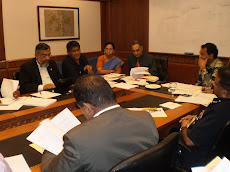


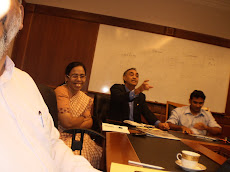

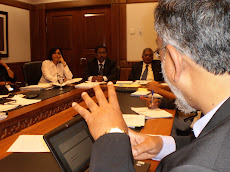
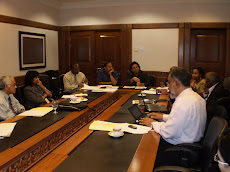
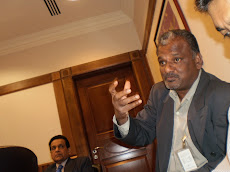
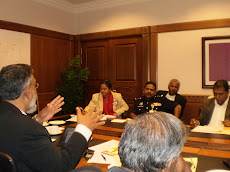
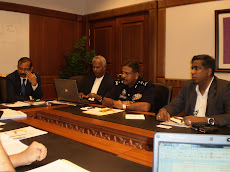

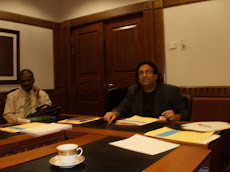
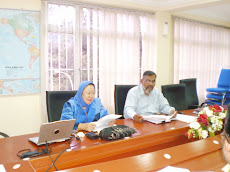

No comments:
Post a Comment